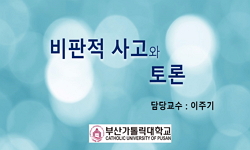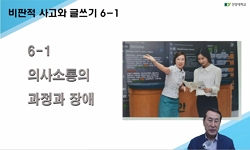This paper aims to examine Social Studies textbooks of Cambodia in terms of the theories of peace education. To achieve this goal, this study, using the conceptual framework for analysis, attempt to analyze 4-6 grades social studies textbooks in eleme...
http://chineseinput.net/에서 pinyin(병음)방식으로 중국어를 변환할 수 있습니다.
변환된 중국어를 복사하여 사용하시면 됩니다.
- 中文 을 입력하시려면 zhongwen을 입력하시고 space를누르시면됩니다.
- 北京 을 입력하시려면 beijing을 입력하시고 space를 누르시면 됩니다.
부가정보
다국어 초록 (Multilingual Abstract)
This paper aims to examine Social Studies textbooks of Cambodia in terms of the theories of peace education. To achieve this goal, this study, using the conceptual framework for analysis, attempt to analyze 4-6 grades social studies textbooks in elementary school. One of the most pressing concerns in Cambodia today could be considered the pursuit of security. Therefore social studies textbooks can be said to be hard-working in passive peace. Unlike the general concept of passive peace, the non-peaceful factors in Cambodia are the insecurity associated with the mines and bombings of the Khmer Rouge regime era, the current traffic and security issues. Thus, the insecurity associated with the mines and bombings of the Khmer Rouge regime era, the current traffic and security issues in textbooks is emphasized as educational objectives and contents. Also, in the first-sixth grade social textbooks, this problem is discussed through an independent chapter, and a way to avoid it is presented. What is regrettable here is that focusing on passive avoidance from non-peaceful factors, students are not able to explore and practice active measures to solve them. The textbook discusses passive peace as avoidance from non-peaceful factors, but textbook does not deal with the nature of violence, types of violence as a structural violence, and a peaceful solution to the real problem. In this regard, worth noting revealed through the analysis of textbooks is that their orientation is placed on social maintenance rather than social change. In relation to the problem of participation, social textbooks focus on contributing to social maintenance rather than active participation in social change. It emphasizes being a good student and a good citizen who can contribute to social development. The main features of the teaching-learning methodology that appear in the teacher’s guidebook is that question or discussion theme does not attach much important to analyzing, critical thinking, and interpreting etc. In the part of the results of the expected learning, guidebooks provide learning result by rote memorization or learning by repetitive conditioning.
참고문헌 (Reference)
1 Gellman, Mneesha, "World views in peace building: a post conflict reconstruction challenge in Cambodia" 85-98, 2010
2 Firer, Ruth, "Virtual peace education" 5 (5): 191-201, 2008
3 Van de Put W., "Trauma, War and Violence: Public Mental Health in Socio-Cultural Context" Kluwer Acadmic/Plenum Publishers 2002
4 Danesh, H. B., "Toward an integrative theory of Peace education" 3 (3): 52-63, 2006
5 Lee Morgenbesser, "The failure of democratisation by elections in Cambodia" 23 (23): 135-155, 2017
6 Clayton, Thomas, "Reorientations in moral education in Cambodia since 1975" 34 (34): 505-517, 2005
7 Kent, Alexandra, "Peace, power and pagodas in present-day Cambodia" 9 (9): 77-97, 2008
8 Kent, Alexandra, "Peace, power and pagodas in present-day Cambodia" 9 (9): 77-97, 2008
9 Vriens, Lennart, "Peace Education: Cooperative Building of a Humane Future" 15 (15): 21-31, 1997
10 Castro, Loreta N., "Peace Education: A Pathway to a Culture of Peace" Miriam College 2008
1 Gellman, Mneesha, "World views in peace building: a post conflict reconstruction challenge in Cambodia" 85-98, 2010
2 Firer, Ruth, "Virtual peace education" 5 (5): 191-201, 2008
3 Van de Put W., "Trauma, War and Violence: Public Mental Health in Socio-Cultural Context" Kluwer Acadmic/Plenum Publishers 2002
4 Danesh, H. B., "Toward an integrative theory of Peace education" 3 (3): 52-63, 2006
5 Lee Morgenbesser, "The failure of democratisation by elections in Cambodia" 23 (23): 135-155, 2017
6 Clayton, Thomas, "Reorientations in moral education in Cambodia since 1975" 34 (34): 505-517, 2005
7 Kent, Alexandra, "Peace, power and pagodas in present-day Cambodia" 9 (9): 77-97, 2008
8 Kent, Alexandra, "Peace, power and pagodas in present-day Cambodia" 9 (9): 77-97, 2008
9 Vriens, Lennart, "Peace Education: Cooperative Building of a Humane Future" 15 (15): 21-31, 1997
10 Castro, Loreta N., "Peace Education: A Pathway to a Culture of Peace" Miriam College 2008
11 Castro, Loreta N., "Peace Education: A Pathway to a Culture of Peace" Miriam College 2008
12 Toh Swee-Hin, "Peace Education, ESD and the Earth Charter" 4 (4): 167-269, 2010
13 Bar, Daniel, "Peace Education in Societies Involved in Intractable Conflicts: Direct and Indirect Models" 79 (79): 560-571, 2009
14 Reza, Eslami-Somea, "Peace Education in Iran: Challenges and Prospects" 9 (9): 31-41, 2014
15 Kyuchukov, "New Peace education with refugees: case studies" 27 (27): 630-646, 2016
16 Tamashiro, Roy, "Museums for peace: agents and instruments of peace education" 12 (12): 219-229, 2015
17 Barisoth, Sek, "Media and Democracy in Cambodia" 27 (27): 206-222, 2000
18 Hantzopoulos, Maria, "Institutionalizing critical peace education in public schools: A case for comprehensive implementation" 8 (8): 225-237, 2011
19 Lee Mary Morrison, "Help increase the peace, a youth-focused program in peace education" 8 (8): 165-267, 2011
20 Münyas, Burcu, "Genocide in the minds of Cambodian youth: transmitting (hi)stories of genocide to second and third generations in Cambodia" 10 (10): 413-439, 2008
21 Tarmana, Bulent, "Examination of the Cognitive Level of Questions in Social Studies Textbooks and the Views of Teachers Based on Bloom Taxonomy" 15 (15): 213-222, 2015
22 Roberts, Rebecca, "Cambodia: Surplus Destruction After War and Genocide" 29 (29): 103-128, 2008
23 Golding, David, "Border cosmopolitanism in critical peace education" 14 (14): 155-175, 2017
24 Culp, Julian, "Against all odds: Peace education in times of crisis" 49 (49): 1029-1039, 2017
동일학술지(권/호) 다른 논문
-
- 사단법인 한국평화연구학회
- 설규상
- 2019
- KCI등재
-
South Korea’s Cultural Diplomacy towards ASEAN: Context and Direction
- 사단법인 한국평화연구학회
- 윤지원
- 2019
- KCI등재
-
‘A War’ and ‘The War’: Conceptualizing Modern US Security Cooperation
- 사단법인 한국평화연구학회
- 전광호
- 2019
- KCI등재
-
System Structure, Power and International Conflict
- 사단법인 한국평화연구학회
- 황원재
- 2019
- KCI등재
분석정보
인용정보 인용지수 설명보기
학술지 이력
| 연월일 | 이력구분 | 이력상세 | 등재구분 |
|---|---|---|---|
| 2026 | 평가예정 | 재인증평가 신청대상 (재인증) | |
| 2020-01-01 | 평가 | 등재학술지 유지 (재인증) |  |
| 2017-01-01 | 평가 | 등재학술지 유지 (계속평가) |  |
| 2013-01-01 | 평가 | 등재학술지 유지 (등재유지) |  |
| 2011-03-15 | 학회명변경 | 한글명 : 세계평화통일학회 -> 사단법인 한국평화연구학회영문명 : The Society of world Peace and Unification -> The Korean Association of Peace Studies |  |
| 2010-01-01 | 평가 | 등재학술지 선정 (등재후보2차) |  |
| 2009-01-01 | 평가 | 등재후보 1차 PASS (등재후보1차) |  |
| 2007-01-01 | 평가 | 등재후보학술지 선정 (신규평가) |  |
학술지 인용정보
| 기준연도 | WOS-KCI 통합IF(2년) | KCIF(2년) | KCIF(3년) |
|---|---|---|---|
| 2016 | 0.58 | 0.58 | 0.56 |
| KCIF(4년) | KCIF(5년) | 중심성지수(3년) | 즉시성지수 |
| 0.54 | 0.48 | 0.882 | 0.06 |




 KCI
KCI






